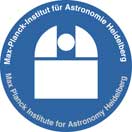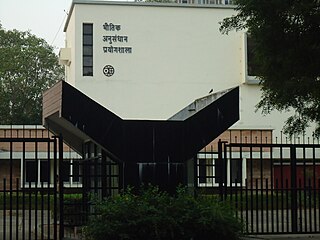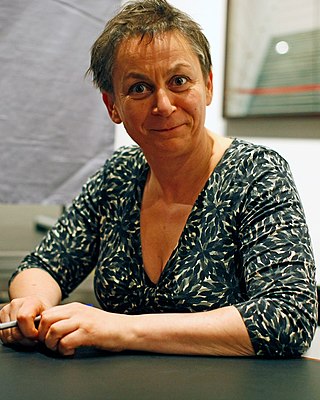Related Research Articles


Donald Arthur Glaser was an American physicist, neurobiologist, and the winner of the 1960 Nobel Prize in Physics for his invention of the bubble chamber used in subatomic particle physics.

The Dublin Institute for Advanced Studies (DIAS) is a statutory independent research institute in Ireland. It was established in 1940 on the initiative of the Taoiseach, Éamon de Valera, in Dublin.

Dunsink is a townland in the civil parish of Castleknock, Dublin, in Ireland. The townland has an area of approximately 1.7 square kilometres (0.66 sq mi), and had a population of 323 people as of the 2011 census.

The Dunsink Observatory is an astronomical observatory established in 1785 in the townland of Dunsink in the outskirts of the city of Dublin, Ireland.

The Max-Planck-Institut für Astronomie is a research institute of the Max Planck Society (MPG). It is located in Heidelberg, Baden-Württemberg, Germany near the top of the Königstuhl, adjacent to the historic Landessternwarte Heidelberg-Königstuhl astronomical observatory. The institute primarily conducts basic research in the natural sciences in the field of astronomy.

The Physical Research Laboratory is a National Research Institute for space and allied sciences, supported mainly by Department of Space, Government of India. This research laboratory has ongoing research programmes in astronomy and astrophysics, atmospheric sciences and aeronomy, planetary and geosciences, Earth sciences, Solar System studies and theoretical physics. It also manages the Udaipur Solar Observatory and Mount Abu InfraRed Observatory. The PRL is located in Ahmedabad.

Kenneth Essex Edgeworth was an Irish army officer, engineer, economist and independent theoretical astronomer. He was born in Street, County Westmeath. Edgeworth is best known for proposing the existence of a disc of bodies beyond the orbit of Neptune in the 1930s. Observations later confirmed the existence of the Edgeworth-Kuiper belt in 1992. Those distant solar system bodies, including Pluto, Eris and Makemake, are now grouped into the Edgeworth-Kuiper belt, or Kuiper belt.
Olivia O'Leary is an Irish journalist, writer and current affairs presenter.
Eric J. Chaisson is an American astrophysicist known for his research, teaching, and writing on the interdisciplinary science of cosmic evolution. He is a member of the Center for Astrophysics | Harvard & Smithsonian, teaches natural science at Harvard University and is an elected Fellow of the American Association for the Advancement of Science.

Anne Teresa Enright is an Irish writer. The first Laureate for Irish Fiction (2015-2018) and winner of the Man Booker Prize (2007), she has published seven novels, many short stories, and a non-fiction work called Making Babies: Stumbling into Motherhood, about the birth of her two children. Her essays on literary themes have appeared in the London Review of Books and The New York Review of Books, and she writes for the books pages of The Irish Times and The Guardian. Her fiction explores themes such as family, love, identity and motherhood.
Ramanath Cowsik is an Indian astrophysicist and the James S. McDonnell Professor of Space Sciences at Washington University in St. Louis. He is considered by many as the father of astroparticle physics. A recipient of the Shanti Swarup Bhatnagar Prize, Cowsik was honored by the Government of India, in 2002, with the fourth highest Indian civilian award of Padma Shri

Takaaki Kajita is a Japanese physicist, known for neutrino experiments at the Kamioka Observatory – Kamiokande and its successor, Super-Kamiokande. In 2015, he was awarded the Nobel Prize in Physics jointly with Canadian physicist Arthur B. McDonald. On 1 October 2020, he became the president of the Science Council of Japan.
Mitchell Sogin is an American microbiologist who is a distinguished senior scientist at the Marine Biological Laboratory in Woods Hole, Massachusetts. His research investigates the evolution and diversity of single-celled organisms.

Kenneth Henry Wolfe is an Irish geneticist and Professor of Genomic Evolution at University College Dublin (UCD), Ireland.

Aoife McLysaght is an Irish geneticist and a professor in the Molecular Evolution Laboratory of the Smurfit Institute of Genetics, Trinity College Dublin in Ireland.

Technological University Dublin or TU Dublin is Ireland's first technological university, established on 1 January 2019, and with a history stretching back to 1887 through the amalgamated Dublin Institute of Technology which progressed from the first technical education institution in Ireland, the City of Dublin Technical Schools. It is the second-largest third-level institution in Ireland, with a student population of 28,500.

Resistance is a 2019 television miniseries written by Colin Teevan for Irish broadcaster RTÉ, dramatising the events surrounding the Irish War of Independence.

Emma Caroline Teeling is an Irish zoologist, geneticist and genomicist, who specialises in the phylogenetics and genomics of bats. Her work includes understanding of the bat genome and study of how insights from other mammals such as bats might contribute to better understanding and management of ageing and a number of conditions, including deafness and blindness, in humans. She is the co-founder of the Bat1K project to map the genomes of all species of bat. She is also concerned with understanding of the places of bats in the environment and how to conserve their ecosystem.
Peter Thomas Gallagher is an Irish astrophysicist. He specialises in solar physics, notably solar storms and their impact on the Earth. He is Senior Professor, and Head of Astronomy and Astrophysics, at the Dublin Institute for Advanced Studies, director of Dunsink Observatory, and an adjunct professor at Trinity College Dublin. He is also the head of the radio-telescope project I-LOFAR, at Birr Castle. He is widely cited in his field and often quoted in the media.
References
- ↑ Leo Enright rte.ie. Retrieved March 2011
- ↑ School of Cosmic Physics dias.ie. Retrieved March 2011
- ↑ World Press Institute worldpressinstitute.org. Retrieved March 2011
- ↑ The Irish Times, "Jacobs present awards", 31 March 1979
- ↑ Workshop on Molecular Evolution Archived 13 February 2006 at the Wayback Machine molecularevolution.org Retrieved March 2011
- ↑ Josephine Bay Paul Center for Comparative Molecular Biology and Evolution jbpc.mbl.edu. Retrieved March 2011
- ↑ RTÉ News: Cork observatory wins Thea award rte.ie. Retrieved March 2011
- ↑ THEA Awards Archived 28 January 2011 at the Wayback Machine teaconnect.org. Retrieved March 2011